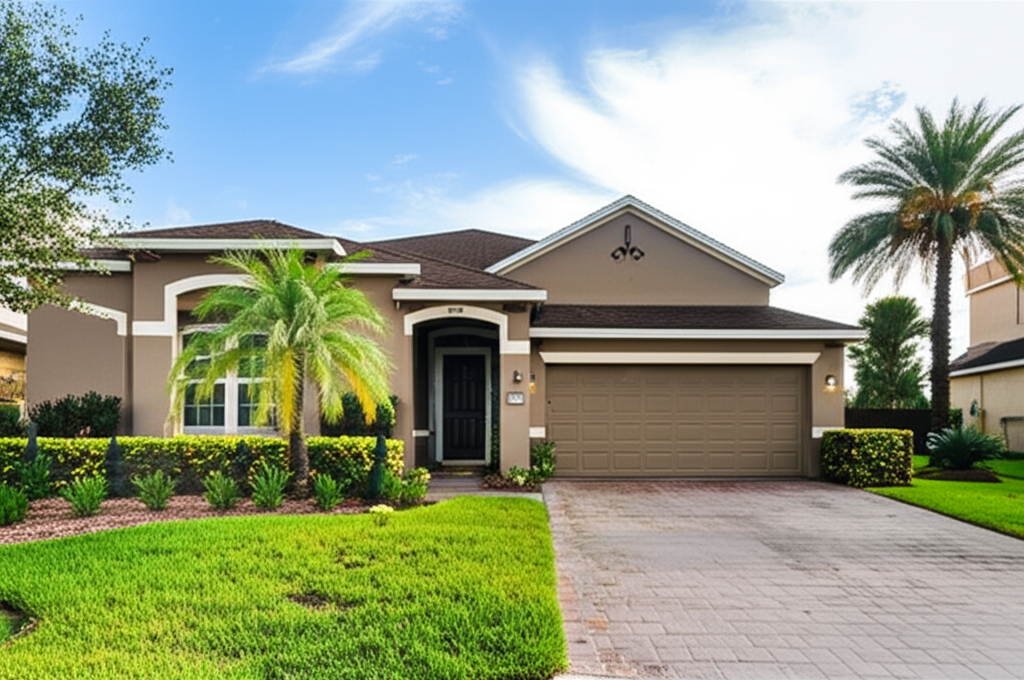Florida Foreclosures: A Practical Guide for Homebuyers
Florida’s sun, sand, and strong job markets make it one of the most active housing markets in the country. That popularity also means you’ll see a steady stream of foreclosures—properties where the owner fell behind on the mortgage and the lender moved to reclaim the home. For savvy buyers, foreclosures can offer value, but they also come with rules, timelines, and risks that don’t apply to traditional sales. If you’re considering a foreclosure in Florida, this guide will help you understand the process, what to watch for, and how to move from curiosity to confident action.
Why Foreclosures Draw Florida Buyers
Foreclosed homes can list below market value, and the competition is often different than in regular resale markets. Investors sometimes step aside when a property needs only moderate work or doesn’t fit their cash-only targets, leaving room for buyers who plan to live in the home. In a state where insurance costs and HOA fees can push monthly budgets, paying a bit less upfront can make your long-term numbers work.
Still, a “deal” is only a deal when you see the whole picture. Florida has unique rules about homeowner association (HOA) liabilities, code enforcement liens, flood zones, and auctions run by county clerks. Understanding those rules helps you spot real value—and avoid expensive surprises.
The Florida Foreclosure Basics (and Why the Timeline Matters)
Florida is a judicial foreclosure state. That means the lender must file a lawsuit, record a notice called a “lis pendens,” and obtain a court judgment before a property is auctioned. After judgment, the county Clerk of Court sets an auction date and conducts the sale, usually online. If you win, the clerk issues a certificate of sale, there’s a short window for objections, and then a certificate of title is recorded in your name.
One key protection for an owner is the right to “redeem,” which means paying off the debt to stop the foreclosure. In Florida, that right ends when the clerk files the certificate of sale. There is also a brief period—often about 10 days—when the sale can be challenged before the certificate of title is issued. For you as a buyer, this means two things: your deal isn’t fully final until the title is issued, and the timeline from auction to ownership is fast, so your funds and logistics need to be ready.
Three Paths to Buying a Foreclosure in Florida
Most foreclosure opportunities show up in one of three ways. First, pre-foreclosure and short sales happen while the owner still holds title and the lender hasn’t completed the foreclosure. A short sale is when the lender allows the property to sell for less than the mortgage balance. These can offer decent pricing, but the approval process is slow and unpredictable because you’re negotiating with both the seller and the lender.
Second, foreclosure auctions are run by the county clerk after a court judgment. These are typically cash sales. You may need to put a deposit down to bid (often around five percent, set by the county) and pay the balance shortly after winning—sometimes the same day or by the next business day. Auctions can deliver exceptional buys, but you purchase “as-is” and take on certain liens and costs.
Third, bank-owned or “REO” (real estate owned) properties are homes that didn’t sell at auction and reverted to the lender. REOs are listed on the open market with an agent. You can usually do inspections, get financing, and close on a standard timeline. The trade-off is more competition and a price that may be closer to market value—though still often discounted versus similar move-in-ready homes.
Liens, Fees, and Hidden Costs Unique to Florida
This is where many Florida foreclosure buyers stub their toes. Unlike a typical sale, a foreclosure doesn’t automatically wipe out every obligation tied to the property. Property taxes, municipal code enforcement liens, unpaid utility balances, and HOA or condo assessments can follow the property and become your problem at closing.
HOA and condo fees deserve special attention. Under Florida law, a first-mortgage lender who takes title through its own foreclosure enjoys a “safe harbor” cap on how much past-due assessments it owes, often limited to a year of assessments or a small percentage of the original loan amount. Third-party buyers at auction, however, do not get that cap. If you buy at the foreclosure sale, you may owe the association all unpaid assessments, plus late fees, interest, and collection costs. Before you bid or submit an offer, you want an “estoppel” letter from the association that states what is owed and whether there are pending special assessments.
Municipal liens and code violations can be costly as well. Overgrown lawns, unsafe structures, or unpermitted work may have triggered fines that continue to accrue. A municipal lien search (separate from a standard title search) is your best defense. It is common in Florida due diligence, yet many first-time foreclosure buyers overlook it.
Also be aware of documentary stamp taxes. Florida charges a tax when you receive a deed (or, in the case of auctions, when the certificate of title is recorded). The amount varies by county and property type and can add thousands to your closing costs. Plan for this from the outset.
Financing a Foreclosure: What Works and What Doesn’t
At auction, you’ll typically need cash or equivalent funds you can move same-day. Financing is rarely allowed because you don’t have time for an appraisal, underwriting, and the customary loan process. Some buyers use a short-term “hard money” loan to close quickly, then refinance. That strategy adds costs and interest, so run the math carefully.
REO purchases usually allow traditional mortgages, but the property must meet your lender’s condition standards. Government-backed loans like FHA and VA require the home to be safe and habitable. A missing HVAC system, extensive wood rot, or significant roof damage may cause the loan to be denied unless repairs are completed first—something banks rarely agree to before closing. Conventional loans are more flexible but still require the property to appraise well and be insurable.
Renovation loans, such as FHA 203(k) or conventional rehab programs, can be a good fit for REOs that need work. They bundle the purchase price and renovation funds into one mortgage, with repairs completed after closing. Renovation loans require planning, contractor bids, and oversight, so they take longer but can turn a “loan-ineligible” house into a financed purchase.
Escrow, Earnest Money, and Contingencies—In Plain Language
When you make an offer on an REO, you’ll post an earnest money deposit. Think of it as a good-faith down payment held by a neutral party, often a title company. That neutral party is the “escrow” holder. Your deposit is credited back to you at closing and is typically refundable during a defined “inspection period.” The inspection period is protected by a “contingency,” which means you can cancel and get your deposit back if certain conditions aren’t met—usually the results of your inspections or the home’s appraised value. With bank-owned homes, inspection periods are often shorter and the contracts are very much “as-is,” so you’re agreeing to buy the property in its current condition unless the contract says otherwise.
Auction Mechanics: From Bidding to Getting the Keys
Auction rules vary by county, but most require registration, proof of deposit funds, and a quick payment of the balance after you win. Once you pay, the clerk issues a certificate of sale. After a short window for objections, a certificate of title is recorded and you become the legal owner. If the home is occupied, you may need to deliver notices or pursue legal eviction. Hiring an attorney helps you do this correctly.
Be mindful of tenants. Under federal law, bona fide tenants typically get the right to stay for the remainder of their lease or receive a 90-day notice after a foreclosure, depending on the situation. If your plan is to move in or renovate quickly, account for that timeline.
REOs: More Familiar, Still Different
Buying an REO feels like a regular home purchase, but the seller is a bank with its own playbook. Expect seller addenda that limit repairs, reduce the seller’s disclosure obligations, and shift some costs (like title insurance or certain recording fees) to the buyer. If you want to be competitive, provide a strong pre-approval letter or proof of funds, keep your inspection period tight but realistic, and be prepared to sign the bank’s addenda promptly. Price isn’t the only lever; cleaner terms and certainty of closing often win in multiple-offer situations.
Condos and Townhomes: Extra Due Diligence Required
Condos and HOAs come with budgets, reserves, rules, and potential special assessments. Florida has adopted stricter requirements for structural inspections and reserves for condominium buildings, and some associations are levying significant special assessments to meet those standards. Before you commit, review the association’s budget, reserve schedule, and recent meeting minutes. Ask about litigation, deferred maintenance, and any pending assessments.
Financing a condo adds another layer. Lenders want “warrantable” condos—communities that meet certain standards for insurance, reserves, owner occupancy, and delinquency rates. If the association has many owners behind on dues or significant structural issues, a traditional loan may be off the table. If the building isn’t warrantable, you may need a portfolio loan, more cash down, or a different property.
Insurance and Inspections in Florida’s Climate
In many parts of Florida, homeowners insurance is a line item you can’t ignore. Insurers will look closely at the age and condition of your roof, electrical, plumbing, and HVAC systems. A “4-point” inspection reviews those four areas and a separate “wind mitigation” inspection can earn you credits that reduce premiums if the home has features like hurricane straps or impact-rated openings. In flood zones, a flood insurance policy may be required by your lender and is always worth pricing, even if not required.
When buying a foreclosure, plan for inspections even if the seller won’t make repairs. You want a licensed inspector, and for homes that need work, a contractor walkthrough to ballpark costs. An extra few hundred dollars upfront can save you from a five-figure surprise later.
What the Numbers Really Look Like: A Simple Scenario
Imagine you win a foreclosure auction at $300,000. Add a buyer’s premium or clerk fee if applicable, plus documentary stamp tax when the title is recorded. Suppose the HOA is owed $14,000 and there’s a $3,000 municipal fine for an unpermitted shed. Your contractor quotes $38,000 for roof and electrical upgrades. You’re now at roughly $355,000 before closing costs and carrying costs. If comparable move-in-ready homes sell for $420,000, you’ve built in equity and can afford the repairs. If comps are at $380,000 and insurance on an older home adds $3,500 a year, the math gets tighter. Run this analysis before bidding, not after.
Title, Municipal Lien Searches, and Getting Clean Ownership
Always have a title company or attorney review the foreclosure case and run a full title search. You want to confirm the foreclosing lender had priority over other liens, that the parties were properly notified, and that the final judgment covers what you think it does. In a mortgage foreclosure, you can usually obtain title insurance after the certificate of title is recorded. In contrast, buying a tax deed (a separate process from mortgage foreclosure) often requires an additional “quiet title” action before many title insurers will issue a policy. Know the difference, and don’t confuse the two.
A municipal lien search is just as important. It checks for code enforcement fines, unpaid utility balances, open or expired permits, and other local issues that don’t always appear in a standard title search. If an old permit was never closed or a deck was built without permits, you may inherit the problem. Your negotiating stance is strongest before you bid or sign a contract.
Negotiation Strategies That Work in Foreclosures
In a crowded market, credibility wins. For REOs and short sales, a detailed pre-approval letter, proof of funds for your down payment and closing costs, and a reasonable but firm timeline signal to the bank that you will close. Instead of waiving your inspection contingency, consider shortening the inspection period and scheduling inspectors in advance. If the home clearly needs repairs that will affect financing, pair your offer with a renovation-loan pre-approval and contractor’s scope of work. Banks often accept slightly lower prices from buyers with fewer uncertainties.
In short sales, patience and communication matter. The seller will sign your contract, but the lender must approve the payoff. Expect requests for updated financials, a broker price opinion, and occasional re-starts if documents expire. If you have a lease ending or a move deadline, build in extra time or keep a Plan B.
Building the Right Team
Foreclosure buying moves fast and touches multiple specialties. An agent with Florida foreclosure experience, a title company or real estate attorney who regularly handles judicial foreclosures, and a contractor who can give quick, realistic bids are worth their weight. If you’re financing, choose a lender comfortable with REOs and, if needed, renovation loans. Ask each professional directly about their foreclosure experience; the right answer will give you confidence.
Bottom Line: Cautious, Prepared Buyers Win
Florida foreclosures can be an opportunity to buy well in a market where value is hard to find. The best outcomes come from treating each property like a small business project: know your numbers, understand the rules, and line up the right help. Get your funds and pre-approvals ready, verify liens and association obligations before you commit, and use inspections to plan—not to wish for repairs that won’t come. Whether you buy at auction with cash or negotiate an REO with financing, a steady approach turns a complex process into a confident purchase.
If you’re ready to explore Florida foreclosures, start by picking an area, reviewing recent sales, and talking with a local agent and title professional about auction procedures and lien risks in that county. With a clear plan and careful due diligence, you can find the right property—and step into Florida homeownership on solid footing.




